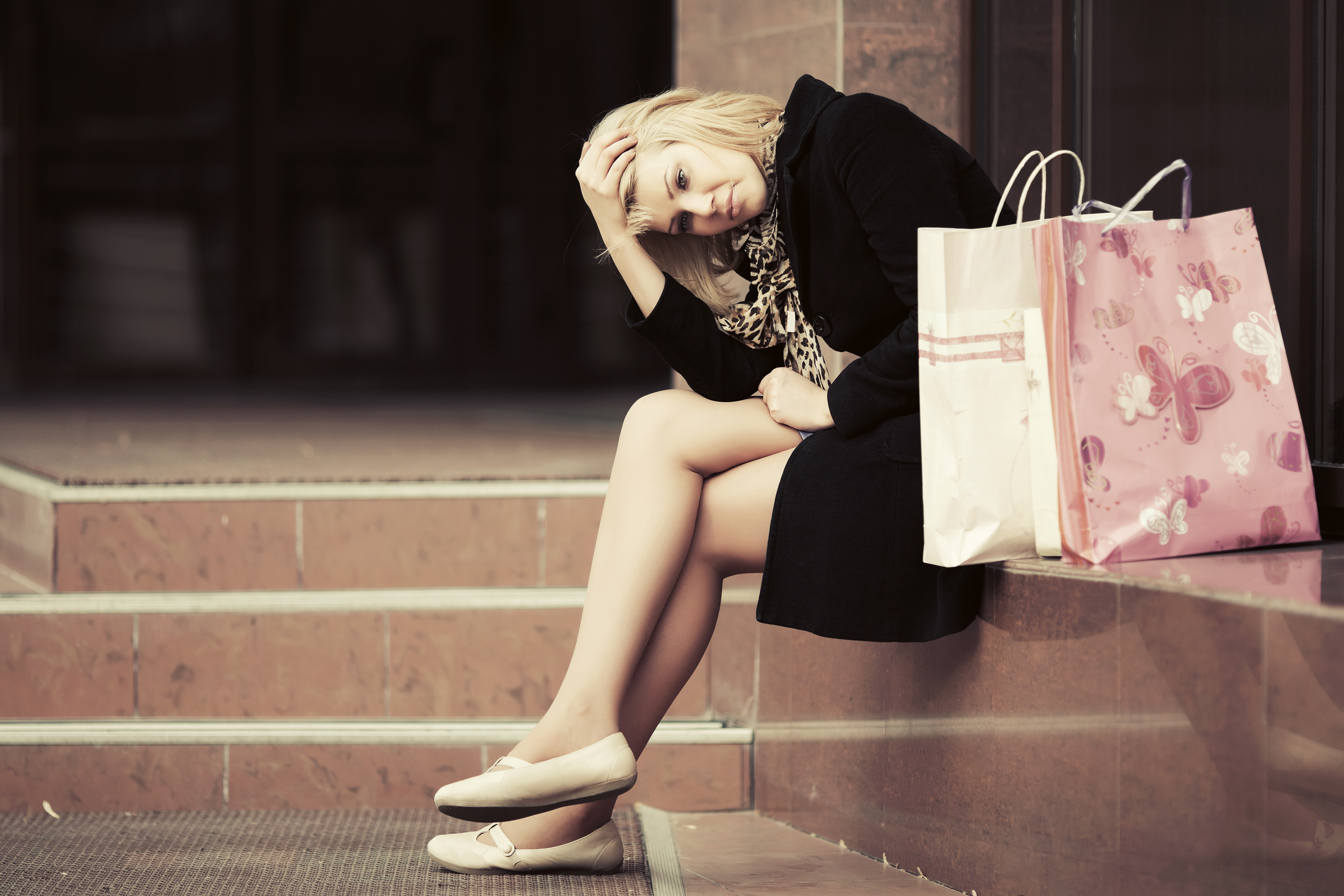Oniomania: Defining and Understanding True Shopping Addiction

(This content is being used for illustrative purposes only; any person depicted in the content is a model)
This time of the year, people often jokingly downplay the seriousness of shopping addiction.
“Oh, I bought so many shoes! I’m a shopaholic!” You or a friend might brag over lunch.
It seems fun and harmless to brag about our over-the-top shopping tendencies. However, those who have real compulsive shopping tendencies are often so in the depth of their addiction that they hide in their denial. Just like alcoholics hide their drinking, compulsive spenders disguise their behavior, pretending they can afford everything they own when in reality they are digging themselves into financial doom.
Navigating the Holiday Season
The holidays are especially trying for all addictions. When it comes to shopaholics, the holidays are extremely vulnerable times. Every store and website have major sales and it is difficult to navigate the world without the desire to buy something. The signs constantly exclaim a new sale or B.O.G.O (buy one get one) event. Even for the non-addict shopper, the temptation to buy can be downright overwhelming and irresistible.
If we are honest, retailers want to consume you during this time. One term that is rarely discussed is oniomania. Oniomania is defined as “an uncontrollable desire to buy things.” You can joke about it all you want, but oniomania is as serious as any other mental illness and the consequences can be devastating.
The Psychology of Shopping Addiction
A recent article in The Fix explored the concept, by interviewing a variety of open shopping addicts and addiction counselors. Terrence Daryl Shulman, JD, LMSW, founder and director of the Shulman Center for Compulsive Theft, Spending & Hoarding, told The Fix,
“This is a difficult time of year for addicts. The Internet is a wonderful tool but it’s like crack cocaine. It’s so easy to become a shopping addict. There are so many prompts: emails, pop-ups, texts.”
The reasons for compulsive shopping vary. Some do it because it is a release from the stresses of life.
“The holidays can be the best of times or worst of times. They can bring up emotions—seasonal blahs, depression, anxiety, bad memories. Family gatherings can be a blessing or a curse.” Shulman said
Sadly, without professional treatment, compulsive shoppers remain in denial or fail at stopping their behavior on their own. They feel they have “earned” their new purchases and often believe they can afford the items they are buying when in reality, they are going deep into debt. Over time, shopping addiction can affect relationships with friends and loved ones.
“It’s one of the top reasons that couples argue,” said Shulman. “There’s even a term for it: financial infidelity. It’s a betrayal when your partner lies about money, especially from joint accounts. It causes a lot of damage.”
Mental Illnesses Increase Vulnerability
According to Shulman, those with mental illnesses like depression, anxiety, bipolar, ADHD or OCD have a higher risk of addictive behaviors. Most have more than one addiction that can be chemical or behavioral. Shulman knows from experience because he was a shoplifter and said that stealing is a result of wanting to continue a shopping addiction yet running out of the funds to do so. Eventually, the stealing becomes an addiction itself.
In a depressed, vulnerable state, the mind will behave like a database. It will scan previous coping strategies to locate how feelings were resolved in the past. For example, if the last time you were upset, you bought a pair of new shoes, the mind will remember the happy chemicals that were released during that experience. Therefore, the next time you are feeling low, you may have a desire to alleviate your pain through “retail therapy”
Unfortunately, once the high of the purchase fades, the negativity and self-doubt returns. Now, the shopper feels the guilt of spending the money which causes more anxiety and self-loathing. Like any addiction, it becomes a vicious cycle. The best way of handling the addiction once it spirals out of control is to seek professional help.
Seeking Treatment for Shopping Addiction
Dr. Shulman’s says finding a therapist “who knows the unique features of shopping addiction” can help with overcoming the compulsion. He also recommends 12-Step programs. “Debtors Anonymous can be very helpful. If you can’t find a meeting near you, there are phone and online groups.”
Shopping addiction is a serious problem often downplayed and stigmatized in society. While for some, the occasional shopping binge can be healthy and fun, for others, it can lead to financial strain. The need to shop can affect a person’s life and relationship with friends and loved ones. Shopping can really take a toll on someone’s life.
In conclusion, while shopping addiction is often misunderstood, it is important we all realize it is a serious problem. There are twelve-step fellowships and treatment centers dedicated to helping people overcome their compulsive behavior. If this sounds like you or someone you know, do not wait for things to get worse. We can help guide you and offer you the tools needed to overcome your addiction. If you or anyone you know is struggling with substance use disorder or mental illness, please call toll-free 1-800-777-9588.
Author: Shernide Delva
